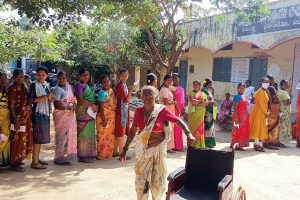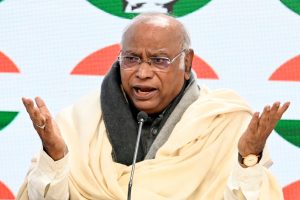The flipped classroom model, group work, continuous assessment, and diversity class compositions are among things that are common in Harvard Kennedy School (HKS) in the US and Indian Institute of Management Ahmedabad (IIMA) in India, says Rohan Chand Thakur, an IAS officer of the 2009 batch from Himachal Pradesh.
“The contrasting in experience begins with the manner of entry. For HKS, your unique life journey and future mission conveyed in essays holds the key whereas for IIMA it was based on a single two-hour examination followed by an interview. Both systems are looking for different facets in a person. This difference carries itself into the way academics and job opportunities are approached,” he said.
Thakur is currently studying at the Harvard Kennedy School in the US– doing his mid-career masters in Public Administration. He had done his bachelors in Economics from St Stephens’ College in Delhi after which he did his MBA from IIM Ahmedabad.
Sharing more about his two academic experiences, the IAS officer said, “At HKS there is emphasis on self-initiative through a highly encouraged system of ‘networking’ where one reaches out to colleagues, professors, and employers, leaving a lot to individual initiative, drive, and collaboration. At IIMA, this was a job left to the placement committee.”
Thakur further said that his second observation at HKS was the levels of padding in the support systems for students. He said in addition to the normal classroom teaching, there is the widely encouraged and publicised concept of ‘office hours’ with professors, teaching fellows and course assistants.
He said the teaching support team is drawn from the current pool of students thereby diluting any mental constructs of hierarchy.
“There are time slots students can book with members of the teaching team to clear course related doubts, further discussion or simply take some career or non-academic advice. This helps people get to know each other better. It is especially beneficial to those students who are hesitant to ask questions in front of others,” the IAS officer said.
He said the entire emphasis is to create a learning environment in which students shed their insecurities, feel comfortable and start soaking in the learnings.
“Grades are not released publicly. Asking the most innocuous questions is explicitly encouraged. Such padding allows students to put the fear of failure outside their consideration set and enhancing their risk-taking ability. They know that even if they take courses in which their prior technical knowledge is lacking, this reinforced teaching support system will help them through,” Thakur said.
“The two years at IIMA and my stints as District Collector in the Indian Administrative Service (IAS) have been the richest periods of professional development in my life,” he added.










